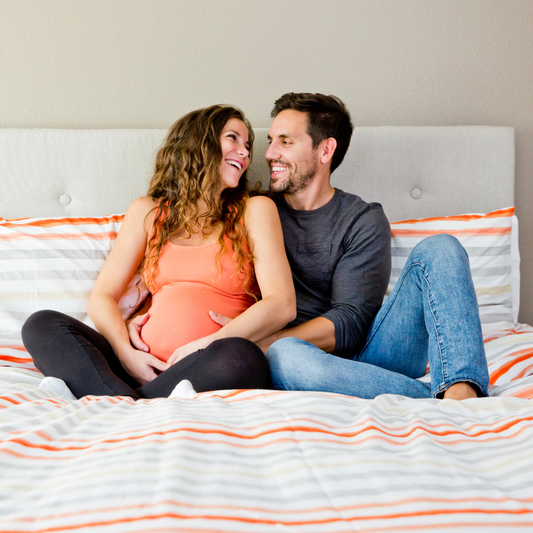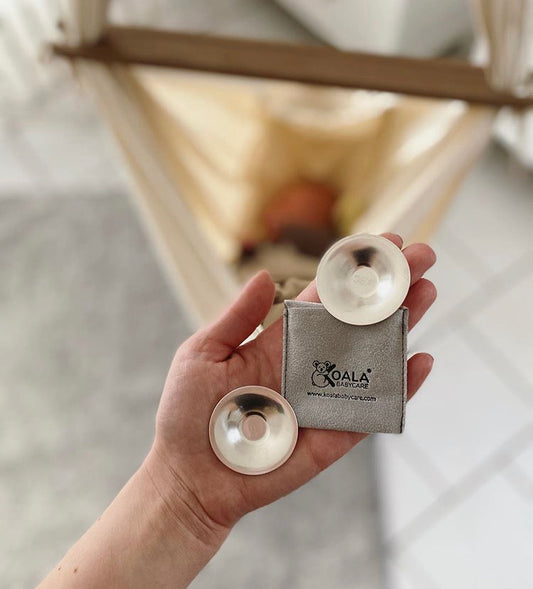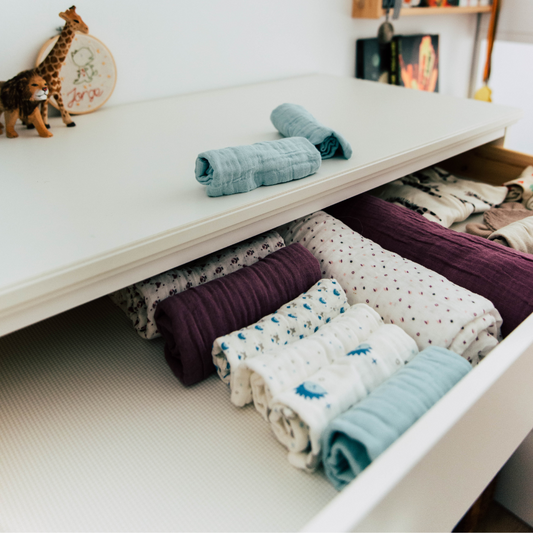The first few days at home with a new baby are full of new emotions, including feelings of sadness (as you may soon discover), which is totally normal and physiological.
Mum and dad need to get to know their baby, and babies need to get to know you both too. It takes time to understand your baby’s needs and cues, which is why the first few days are so important.
Each household member, mum, dad, baby, and siblings will need to find their own space. Your family will take on a totally new dynamic.
This article doesn’t speak about all those newborn essentials you need during the early days of your little one's life (for this you can read List of essential items for newborn babies and How to organise your baby’s changing table. It goes without saying that you do need to ensure you have everything to hand - but in this article we’re focusing on everything you need to know to get through those first few rollercoaster days.
Early days at home with a new baby – newborn tips
Newborn sleep schedule, breastfeeding, re-arranging your home, newborn baby hygiene during the first few days, but above all, what mum needs. Those are the things we’re taking a look at in the following paragraphs!
Take all the time you need - without feeling guilty
'It’ll all come naturally to you', everyone promises. However, that’s only partially true. Learning how to breastfeed, to understand your newborn’s non-verbal cues, to interpret their cries, to set your own rhythm... all take time.
The first few days are vital for getting to know each other and to establishing your own routine. There are only two things a mum needs to think about during this time: devoting herself to her baby and taking the time she needs to recover from the pain and adrenalin of childbirth.
Do not feel guilty about feeling confused, anxious or like you’re not doing enough during those early days: you’ll gradually gain confidence as a mum as you learn to understand your baby! Don't be too hard on yourself, you are doing amazingly well.
What mum needs – care after birth
During those early days, a mum's needs after giving birth are just as important as her baby’s needs. That’s why you shouldn’t be afraid of making sure you take some time out and space for yourself.
What does a woman who’s just given birth need? Well, two things: help and rest.
Your body needs time to recover, even if you had an uncomplicated birth. Accept help with meals, cleaning, taking care of any older children. If you don’t have anyone close by who can help you out, put all those non-essential things on your to-do list on hold for the time being – they can wait.
Organise things at home before the birth so that you have everything you’ll need on hand, making homemade frozen meals in advance and ensuring all your baby’s essentials are ready.
Stock your fridge with healthy food
Another thing you can do before giving birth is to stock up on food and snacks to see you through those first few days following the birth. Among everything else you’ll need when you come home, replenishing your energy with food postpartum is near the top of the list! Especially if you’re breastfeeding, as you’ll be consuming an extra 500 extra calories per day. It’s therefore just as important to ensure you eat a well-balanced diet whilst breastfeeding as you did during pregnancy.
Visiting newborn babies: how to manage visits from family and friends
Family and friends will be queuing to visit you at home and meet your little one. Don't feel obliged to say yes to everyone during the first week, there’ll be plenty of time later.
Accept visits from those closest to you, those you are at ease with and who’ll help out with cooking and cleaning. If you prefer not to have any visitors at all during that first week, don’t feel guilty, this special moment is all yours: just yours, baby’s, and daddy's.
Your baby also needs a peaceful environment. Coming into the world is quite a shock for a newborn: the transition from being snug and cosy inside your womb to being outside in the big wide world is huge. All babies need time to adjust.
It’s also important to protect them from germs and illnesses at this newborn stage, so the fewer people who see, cuddle, and kiss them, the better.
Baby blues
Bouts of low mood and frequent crying spells are quite common during the first few days after giving birth. They call it the 'baby blues' and it’s due to physiological causes: postnatal hormonal changes combined with the physical and psychological stress of childbirth.
Don't feel bad or 'guilty': it will pass in a few days. However, it’s important that those close to you, especially your partner, offer understanding and support to you. The last thing you need is for them to be unsupportive or even annoyed at you!
If you’re still feeling down two weeks after the birth, contact your midwife or GP for help and advice for postnatal support. Postnatal depression does indeed exist, although it is less common than the standard baby blues, it should still not be taken lightly!
Outdoor walks are good for you both
When can i start walking after giving birth? This is a frequent question asked by many new mums: don't be too afraid of going outdoors during those first few days of your baby's life: a short walk, if you feel up to it and have no health issues, will only do you good.
Just make sure you avoid walking long distances, noisy and crowded places, or when it’s too hot or too cold.
If you feel your body is still calling out for rest, listen to it and keep life low-paced for a while longer. There’s no rush!
Follow your baby’s sleep routine
Babies sleep most of the time during the first few days, on average 16 to 20 hours a day. They usually wake up every 2-4 hours for a feed.
There’s no need to wake them; on the contrary, it’s better to follow your baby’s newborn sleep pattern. As soon as they’re hungry, they’ll make themselves heard!
Is your baby restless in their sleep? Don't worry, it’s entirely normal for newborns to make little noises or fuss a little while sleeping.
Don't worry about newborn crying
Crying is the only way infants communicate. This means your newborn will cry for practically everything and anything: hunger, cold, tummy ache, wet nappy, sleep, and so on.
It’s only normal that new parents may worry their little one is unwell or in pain; in reality, however, they are simply communicating their need.
Breastfeeding: the importance of a good start
For many new mums, discovering that breastfeeding is not at all as natural or spontaneous as they thought may come as quite a shock. The truth is breastfeeding requires patience and practice, and can even be rather painful at first, especially if not done correctly.
It's vital that you learn the correct breastfeeding latch from the beginning, as incorrect positioning can cause pain and sore, cracked nipples.
This is why we recommend that you consult a midwife or a lactation consultant for guidance to ensure your breastfeeding journey is both positive and pleasant from the outset.
Daddy’s role during a newborn baby's early days
Unfortunately, dads currently have limited time to spend at home with their new baby after the birth, so they need to make the most of the little time they have with their little one.
It's very important that dad is also fully engaged in baby's life from the start, he has to get to know and understand them just as much as mum. A newborn baby has to get to know him too as they are already familiar with mummy after spending 9 months inside her belly.
Baby slings, wraps and carriers can be extremely valuable in helping to strengthen the bond between baby and dad, as body-to-body contact favours bonding.
Dearest mums - do not make the mistake of not trusting your partner to look after the baby, on the contrary, help boost his confidence and encourage him to soothe, change nappies, and put them to sleep.
If dad’s struggling to understand where he fits in during those early days, a vicious circle may be created where he doesn’t feel capable of taking care of the baby and you don’t trust him to, meaning you have to do everything yourself. This won’t do either of you any good in the long term!






